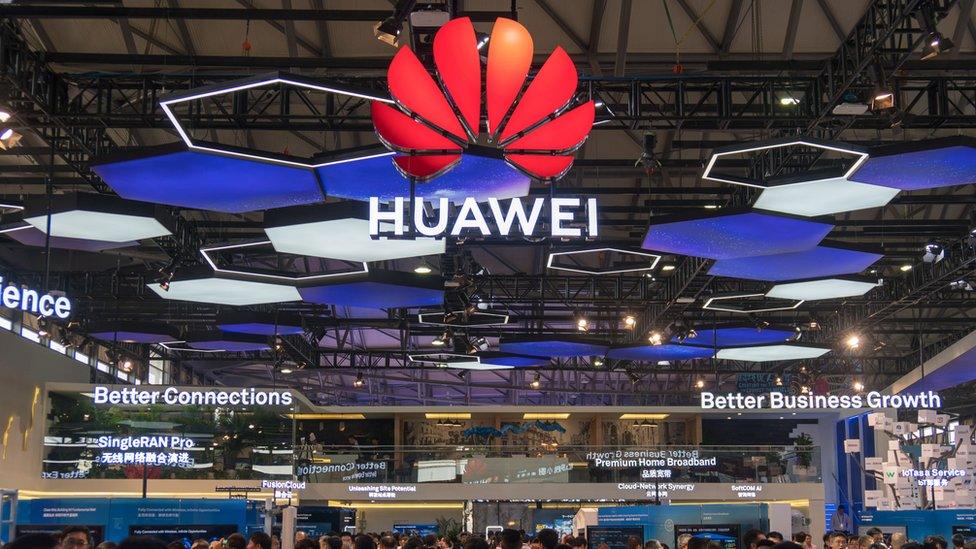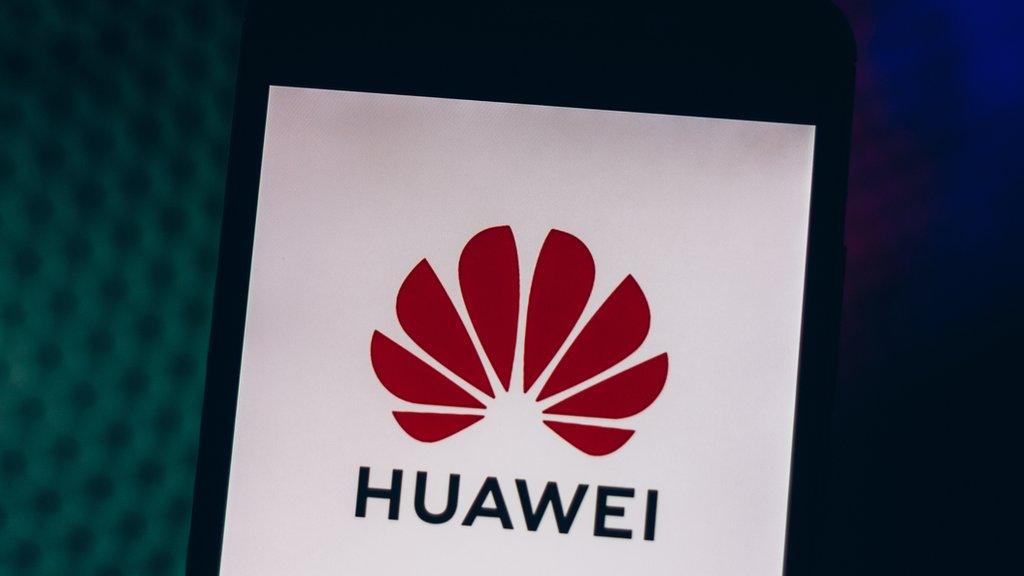Huawei: Will new rules affect my mobile phone or internet?
- Published
- comments

You might've heard of Huawei, it's a Chinese company which is one the world's biggest mobile phone makers.
Earlier this year the UK government decided to allow Huawei be involved in providing the new 5G mobile network.
But in a big change of policy mobile phone providers in the UK are being banned from buying new Huawei 5G equipment after 31 December, and they have to remove all of Huawei's 5G kit from their networks by 2027.
Washington in the USA has imposed similar measures - and claims the firm poses a national security threat to America- something Huawei denies.

What is Huawei?
Huawei is a massive technology company founded in China back in 1987.
It's pronounced wah-way, according to the company.
It makes smartphones and tablets, provides 4G and 5G internet access, and makes wireless broadband routers, one of which you may have in your home.
It is the largest telecommunications company in the world and it sells more mobile phones than Apple, which makes the iPhone.
Why is 5G such a big deal?
Many countries are preparing to move from 4G to more advanced 5G mobile networks. Download speeds 10 times faster than today will radically change how we work, communicate and stream videos.
Sounds good, right?
But by controlling the tech at the heart of these networks Huawei could be able to spy or disrupt communications.
This is important, as more things - from self-driving cars to fridges, baby monitors and fire alarms - become connected to the internet.
WATCH: What can you do with 5G?
Will my phone stop working now?
It's not entirely clear what will happen yet.
But the UK's Digital Secretary Oliver Dowden said the move to ban Huawei "will have real consequences for the connections on which all our constituents rely".
And other mobile companies are concerned about the disruption to customers.
One of the big bosses of the BT (a big British telecommunications company) said: "We need to make sure that any change of direction doesn't lead to more risk in the short-term - I think that's where the detail really matters."
- Published28 January 2020

- Published26 February 2015

